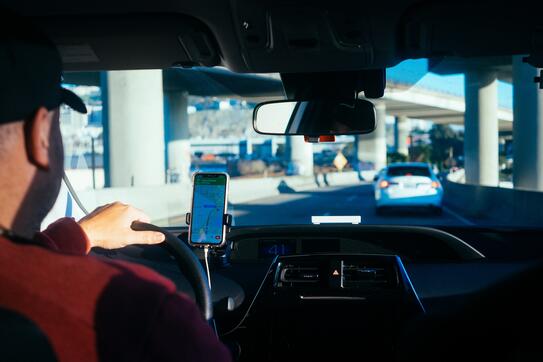Top Takeaways
- Routines are repeated behaviors that people follow, occurring at roughly the same time on a daily, weekly, or monthly basis. When analyzed within a customer relationship management (CRM) context, routines can be a predictor of customer value and behavior.
- Routines can be customer-specific. Whereas some customers may be mainly active during the week, others may be weekenders.
- Customers who used Via’s rideshare services in a routine pattern, were more valuable customers, with higher future purchases and lower churn rates than customers who used the ridesharing on a non-routine basis.
- Routine riders are more loyal customers. They are less sensitive to price increases and less affected by service issues.
- Detecting and measuring routineness can help companies identify routine-type customers, predict customer behavior, and develop highly personalized and effective marketing strategies.
Adapted from “Detecting Routines: Applications to Ridesharing CRM” by Oded Netzer and Nachum Sicherman of Columbia Business School, Ryan Dew of The Wharton School, and Eva Ascarza of Harvard Business School.
Research
The research, which is the first to study the presence of routines in consumer behavior and their implication for customer management, aims to show the value of identifying habitual patterns in customer behavior. The study specifically examines this in the context of ridesharing by exploring how ridesharing behavior of routine consumers differ from non-routine customers.
The researchers created a “Routineness Metric” to identify the pattern of routine behavior (or lack of) for each of the company’s customers. The flexible and probabilistic model can capture routine usage patterns for each customer and is suitable for a wide range of data contexts and customer behaviors.
In this research, the model was applied to data provided by Via, a pioneer ridesharing company, using detailed records of around 2,000 customers in New York City over a 48-week period from January 2018 to November 2019.
A unique feature of the model is that it allows the researchers to identify specific types of routines. For example, a customer who
uses the service regularly during commuting hours, as opposed to a customer who primarily makes ride requests at night, especially on weekend. The figure on the following page demonstrate seven typical types of routines identified.
The researchers identified several common routines across customers:
- Commuting Routine: Customers who use the ridesharing service regularly during commuting hours.
- Nights and Weekends: Customers who primarily make ride requests at night, especially on weekends.
- Work Hard, Play Hard: Customers who during weekdays commute to work in the morning but return home late, and exhibit weekend usage that peaks between midnight and 4 AM.
- At Dawn: Customers who use the service mostly during the weekday morning hours.
- Evenings: Customers who use the service mostly during the evening hours.
Measuring customer routineness can help ridesharing companies better understand and manage their customer relationships. The research found that customers who have well-defined routines when using the ridesharing service are better customers. They also stay more engaged, making routineness a significant predictor of customer value. Companies should identify and target promotions to various routine types and strive to engage customers in a routine behavior.
Although each routine type is unique and some categories are more valuable to the company than others, customers who fall into one of the routine categories outlined in the study contribute a substantial portion of the overall value to the ridesharing service.
These customers are also more likely to accept proposals for rides and show greater willingness to request rides again within a week, even after experiencing a service failure or higher prices. They prioritize convenience-related variables such as shorter waiting times and faster speeds.
The findings of the research also go beyond predicting customer value:
- Price Sensitivity
- Customers with routines were found to be less sensitive to changes in prices. This means that businesses can rely on the loyalty of routine customers, even if prices fluctuate.
- Resilience to Disruptions
- Routine customers were also shown to be more resilient to certain disruptions in service. They were less likely to be deterred by occasional hiccups, ensuring more stable customer relationships.
- Optimizing Service Delivery and Supply Chain
- Understanding customer routines allows businesses to optimize their services around these patterns. For example, a ridesharing company could allocate more drivers during peak routine travel times, ensuring a smoother experience for customers.
Conclusion
Managers should include this new measure of routineness into their CRM toolbox. Understanding customer routines offers a new lens through which businesses can gain valuable insights about their customers. By leveraging the power of advanced statistical models to measure routines, companies can predict customer value, optimize service delivery, and build stronger customer relationships. Recognizing the importance of routines and investing in research to explore their formation and impact can lead to better customer management strategies and improved business outcomes.




